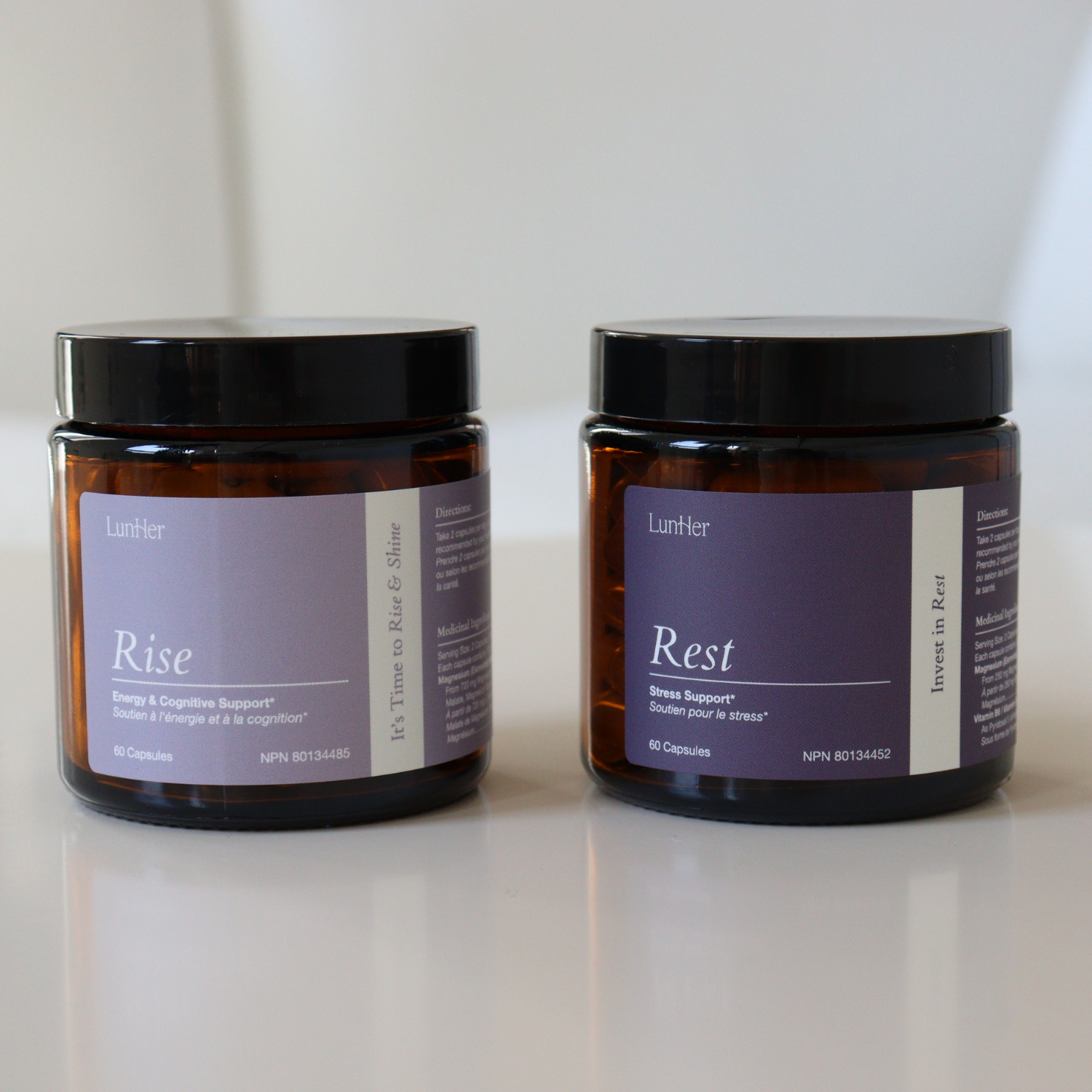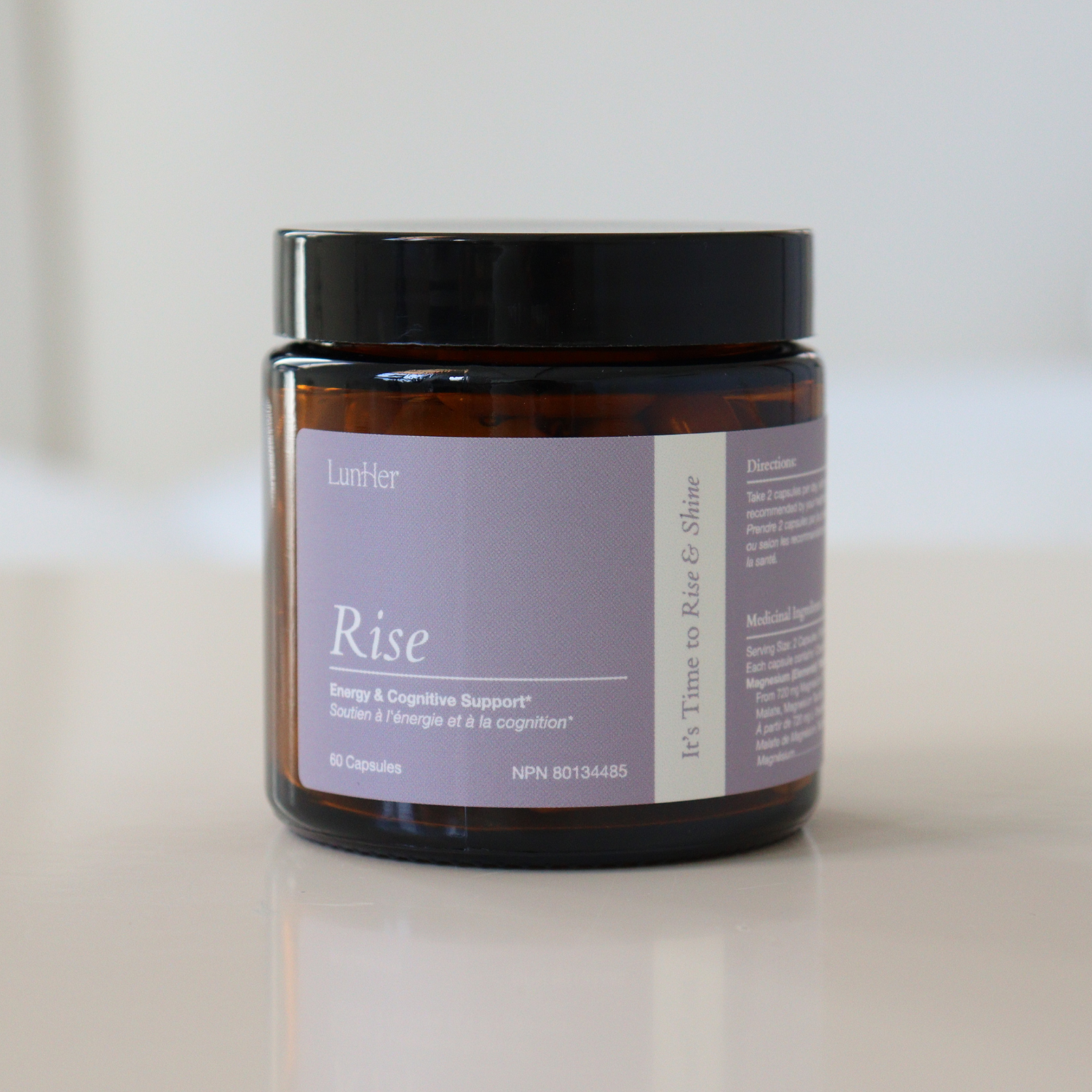
Should You Be Taking a Multivitamin?
Multivitamins are a one-size-fits-all approach that may seem like the easiest way to get enough nutrients but they might not benefit everyone.
The LunHer Take
Multivitamins are the most popular type of dietary supplement in the US but it isn’t entirely clear how helpful they actually are.
Many Canadians and Americans don’t maintain a healthy and varied diet, which means that supplements could help them get enough nutrients.
Instead of multivitamins, individual vitamins and supplements are an even better way to tailor your vitamin regimen to your unique health needs.
A Brief History
For decades, the conventional wisdom suggested taking a daily multivitamin as a simple way to meet all of the body’s needs for essential vitamins and minerals. As recently as 2006, it was estimated that 39% of all American adults take a multivitamin supplement, making them the most popular type of dietary supplement in the US. However, there is still a lot of debate about how helpful multivitamins actually are.
They first became available in the early 1940s and they were designed to fight diseases caused by serious nutritional deficiencies, like scurvy. Since then, years of research have investigated whether the increased nutrient intake from a multivitamin can actually improve health or prevent chronic disease.
Why Isn’t Diet Enough?
When you eat a healthy and varied diet, including plenty of fruits, vegetables, healthy fats, and proteins, you should get most of the essential nutrients you need. If this sounds like you, a multivitamin probably wouldn’t benefit you. However, the reality is that many Canadians and Americans don’t have an ideal diet.
A 2011 study showed that over 70% of Americans do not get recommended levels of vitamin D, and over 60% do not get recommended levels of vitamin E. The same study also noted many Americans fail to consume sufficient amounts of vitamin A, vitamin C, calcium, and magnesium. As well, specific populations may benefit from certain supplements because they are at higher risk of a particular deficiency, or because their requirements for a particular micronutrient are higher than average. For example:
-
Pregnant women
-
Older populations
-
People with certain gastrointestinal disorders, such as celiac disease
-
Vegetarians and vegans
These are all examples of highly specific dietary needs that may require vitamin or mineral supplementation in the absence of a well-balanced diet. But is a multivitamin actually the best approach?
Are All Multivitamins the Same?
Multivitamins are a one-size-fits-all approach to dietary supplementation, which means they are not precisely tailored to your specific needs. The right combination of nutrients for you might be very different for someone with a different age, sex, medical history, and lifestyle.
In the US, there is no regulatory definition for multivitamins and minerals, so they may contain any combination of vitamins, minerals, herbs, metabolites, or amino acids. A 2007 study published in the American Journal of Clinical Nutrition found a wide range of variation in the contents of multivitamins. Their findings noted that multivitamins can actually pose the risk of excess intake of nutrients, particularly for vitamin A, zinc, and iron.
With so many multivitamins available on the market, and few guidelines or regulations on what they contain, considerable research is required to understand what you are buying. Among the countless options, there are vast differences in the quality of ingredients, formulations, and production techniques. It is also difficult to compare nutritional content and understand how each would complement your particular diet and lifestyle.
How Do You Know Which Multivitamin to Take?
It may be difficult to find a multivitamin that fits your exact needs. Selecting individual vitamins and supplements is an even better way to tailor your vitamin regimen to your unique health needs. It will also be easier to track your intake amounts for each specific vitamin which is important to be aware of.
Some factors to consider when choosing vitamin and mineral supplements are your health history and health goals. For example you may want to boost your energy, focus on digestive health, or sleep better. There are specific vitamins and supplements that can help in these areas, but a multivitamin may not provide them in the necessary doses. As always, it’s recommended to speak to a healthcare professional to determine the supplement regimen that is best for you.
The Bottom Line
Following a healthy diet can provide a lot of the basic nutrition you need but some people aren’t getting all of the nutrients they need from food. For many people, a multivitamin may be a convenient way to prevent nutritional deficiencies and promote general health. However, multivitamins don’t take your personal diet and lifestyle into account. Instead of a multivitamin, consider taking individual vitamins and supplements tailored to your individual needs.





